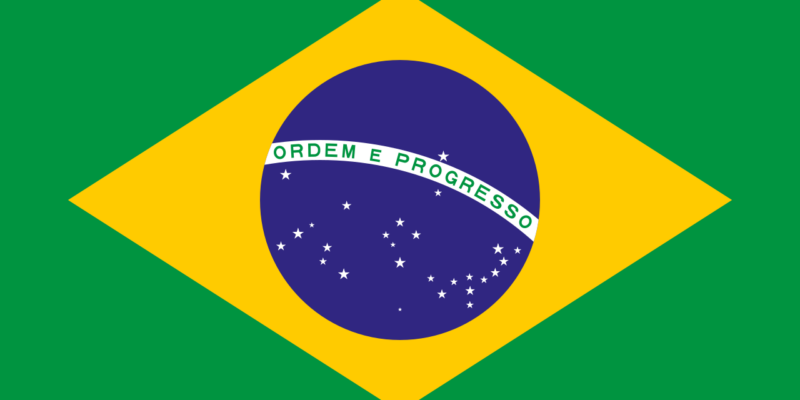The only news emanating from Brazil that many Americans care involves their soccer programs. But if you’ve been watching the news or paying attention to First Amendment blogs then perhaps you have seen stories about Brazil’s fight with X, the artist formerly known as Twitter. From our friends at Alliance Defending Freedom International:
Brazilian Supreme Court Justice Alexandre de Moraes and Musk have been engaged in a dispute stemming from de Moraes’s demands that X censor messages the justice disfavors. On Aug. 28, 2024, de Moraes gave Musk 24 hours to name a legal representative for X in Brazil.
Musk declined to name a representative because Brazil had threatened the previous representative with jail time. On Aug. 30, de Moraes officially suspended X nationwide in Brazil. In addition, he froze the bank accounts of Starlink, another company partially owned by Musk that provides internet via satellite.
In his order suspending X, de Moraes said the platform presented a “real danger” of “negatively influencing the electorate in 2024, with massive misinformation, with the aim of unbalancing the electoral result, based on hate campaigns in the digital age, to favor extremist populist groups.”
In other words, the suspension was not solely motivated by X’s lack of legal representation. It was motivated, at least in part, by de Moraes’s fears that allowing certain speech on X might lead to an electoral result he personally would not like.
For those keeping score at home, it appears that the Brazilian Court shut down X because X refused to censor accounts or messages the Court found to contain “misinformation,” i.e. messages the Court disagreed with.
(Who decides what information is “misinformation.” Surely such a vague standard cannot be the basis of suppressing one’s liberty. One man’s misinformation is another man’s truth. Who decides what’s what? The fact checkers at ABC News?)
As ADF pointed out, “X is certainly a medium through which many Brazilians wish to express, think about, and discuss ideas. Recent estimates prior to the shutdown said roughly 40 million Brazilians use the social platform. By suspending X because it refused to censor information that they disliked, de Moraes and the rest of the court violated those users’ rights to engage in free expression on the platform.”
Surely such conduct could never occur on the shores of the nation that enshrines the freedom of speech in its First Amendment, right? Right?
Wrong.
Last year, in a lawsuit brought against the Federal government by various State Attorney Generals and others, Federal Judge Terry Doughty found significant government pressure on social media platforms to censor speech the government did not like: “[d]uring the COVID-19 pandemic, a period perhaps best characterized by widespread doubt and uncertainty, the United States Government seems to have assumed a role similar to an Orwellian ‘Ministry of Truth.'” The government orchestrated “a far-reaching and widespread censorship campaign” targeted at mostly conservative viewpoints that included using “its power to silence the opposition. Opposition to COVID-19 vaccines; opposition to COVID-19 masking and lockdowns; opposition to the lab-leak theory of COVID-19; opposition to the validity of the 2020 election; opposition to President Biden’s policies; statements that the Hunter Biden laptop story was true; and opposition to policies of the government officials in power. All were suppressed.”
Justice Alito wrote, concerning the same conduct, that “[f]or months, high-ranking Government officials placed unrelenting pressure on Facebook to suppress Americans’ free speech.”
What these events show is that top federal officials continuously and persistently hectored Facebook to crack down on what the officials saw as unhelpful social media posts, including not only posts that they thought were false or misleading but also stories that they did not claim to be literally false but nevertheless wanted obscured. And Facebook’s reactions to these efforts were not what one would expect from an independent news source or a journalistic entity dedicated to holding the Government accountable for its actions. Instead, Facebook’s responses resembled that of a subservient entity determined to stay in the good graces of a powerful taskmaster. Facebook told White House officials that it would “work . . . to gain your trust.” When criticized, Facebook representatives whimpered that they “thought we were doing a better job” but promised to do more going forward. They pleaded to know how they could “get back to a good place” with the White House. And when denounced as “killing people,” Facebook responded by expressing a desire to “work together collaboratively” with its accuser. The picture is clear.
The picture is indeed clear: governments like to censor speech they disagree with. Nor is this a recent phenomenon. The United States has struggled with this idea since its founding.
Exhibit A: the famous Alien and Sedition Acts of 1798 which made it a crime to, write, print, utter, or publish “false, scandalous and malicious writing or writings against the government of the United States, or either house of the Congress of the United States, or the President of the United States, with intent to defame the said government, or either house of the said Congress, or the said President, or to bring them, or either of them, into contempt or disrepute.”
Exhibit B: The Sedition Act of 1918 forbade “disloyal, profane, scurrilous, or abusive language” about the U.S. Government in the midst of World War 1. William Edenborn, famous railroad magnet who later in life made his home in Winn Parish, was arrested in New Orleans for saying that Germany was not a threat to the United States. No charges were filed and he was released.
The point is that while this sort of speech suppression seems like it might only happen in a remote foreign country, the fact is that such conduct has been an all-too-common occurrence in this nation. And that, my friends, is why you should care about what happens in Brazil: the same sort of viewpoint discrimination has happened here in a country where our First Amendment enshrines the right to freedom of speech.
Advertisement
Advertisement

